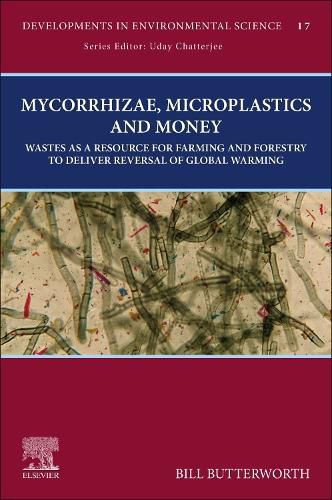Readings Newsletter
Become a Readings Member to make your shopping experience even easier.
Sign in or sign up for free!
You’re not far away from qualifying for FREE standard shipping within Australia
You’ve qualified for FREE standard shipping within Australia
The cart is loading…






Mycorrhizae, Microplastics and Money: Wastes as a Resource for Farming and Forestry to Deliver Reversal of Global Warming introduces a groundbreaking, technology-driven global plan that aims to achieve environmental sustainability through financial incentives. This book explores innovative methods to upcycle end-of-life materials using mycorrhizae and microplastic technology, emphasizing the importance of transforming waste into valuable resources without relying on mineral fertilizers, while still achieving higher crop yields. The potential for earning carbon credits is also discussed.
The book delves into safe waste upscaling techniques, ensuring both financial and environmental sustainability. It offers practical approaches to land management and discusses the concept of reverse franchising, emphasizing its role in promoting widespread adoption of sustainable practices.
$9.00 standard shipping within Australia
FREE standard shipping within Australia for orders over $100.00
Express & International shipping calculated at checkout
Mycorrhizae, Microplastics and Money: Wastes as a Resource for Farming and Forestry to Deliver Reversal of Global Warming introduces a groundbreaking, technology-driven global plan that aims to achieve environmental sustainability through financial incentives. This book explores innovative methods to upcycle end-of-life materials using mycorrhizae and microplastic technology, emphasizing the importance of transforming waste into valuable resources without relying on mineral fertilizers, while still achieving higher crop yields. The potential for earning carbon credits is also discussed.
The book delves into safe waste upscaling techniques, ensuring both financial and environmental sustainability. It offers practical approaches to land management and discusses the concept of reverse franchising, emphasizing its role in promoting widespread adoption of sustainable practices.